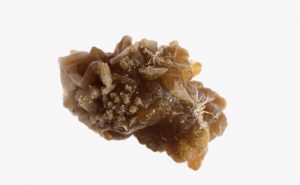Kidney stones, also known as ‘renal calculi’, are solid crystal masses that are most often originated in the kidneys but can develop in other parts along the urinary tract. The urinary tract consists of the bladder, kidneys, ureters and urethra.

Kidney stones are differentiated by the type of crystals they are made up of. They include;
- Calcium-based kidney stones
They are formed when oxalic acid, in the course of being processed, combines with salts like calcium to bring forth salts of calcium oxalates and then precipitate in crystalline form as stones in the kidney. High-oxalate foods consist potato chips, spinach, chocolates, peanuts etc. Although this type is made up of calcium, adding enough calcium into your diet can be effective in preventing the stones from forming in the first place.
- Uric acid-based kidney stones
When urine is too acidic, crystals are formed in the joints and cartilage of the body. Purine is a colorless substance found in animal protein; a purine-rich diet can increase urine’s acidity. Men, people with gout and those undergoing chemotherapy are especially prone to this type. Purine-rich foods include sea food, poultry, liver, alcohol, meats, kidney beans etc.
- Struvite-based kidney stones
Usually found in women with UTI’s (Urinary Tract Infections), these stones can be large and cause urinary obstruction. They result from kidney infection.
READ ALSO: You Would Never Run Away From Beans After These Discoveries
- Cystine-based kidney stones
However rare, they occur both in men and women that have the genetic disorder ‘cystinuria’. Cystine is an acid that is produced naturally in the body. In this type of stone, cystine leaks from the kidneys into the urine.
Risk factors of kidney stones include; making less than 1 liter of urine daily, family history, obesity, dehydration, a diet with high protein/salt/glucose levels, hyperparathyroid condition, taking medications like triamterene diuretics, antiseizure drugs, and calcium-based antacids, etc.
Kidney stones are associated with severe pain in different parts. Other symptoms include nausea, vomiting, blood in urine(red, pink or brown) and foul-smelling urine, chills, fever, frequent urination etc.
To avoid the risk of having kidney stones, the following is important;
- Proper hydration
- Taking citrate juices
- Eating calcium-rich foods moderately
- Reducing intake of salt and animal protein.

